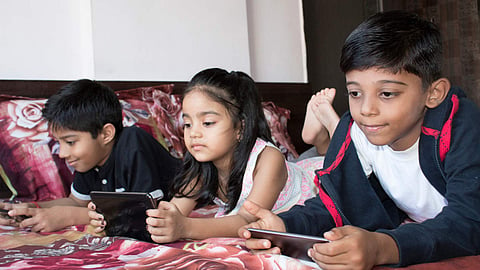

A recent study conducted by the Chanakya National Law University (CNLU) and Child Rights and You (CRY) found that 33% of 424 parents polled reported that strangers were approaching their children through online platforms seeking friendships, personal and family information, and offering sexual advice. The study also included 384 teachers and 107 other stakeholders from the states of Maharashtra, Karnataka, West Bengal, and Madhya Pradesh.
According to the study, 40% of children who reported incidents of online solicitations and abuse were adolescent girls between the ages of 14 and 18, as per a PTI report. Adolescent boys in the same age group followed closely at 33%. Responses were found to be more frequent from rural areas than urban areas, and the report found that both male and female respondents had disclosed encounters with online child sexual exploitation and abuse.
The survey revealed that 33.2% of parents reported that strangers were using internet platforms to approach their children with offers of friendship, requests for personal and family information, and providing sexual advice about dating. Additionally, parents reported that their children were exposed to inappropriate sexual content and engaged in sexual dialogues online. Responses were found to be more frequent from rural areas than urban areas, with both male and female respondents disclosing encounters with online child sexual exploitation and abuse (OCSEA).
Only 30% of parents said they would go to the police station and file a complaint if their children were subject to online child sexual exploitation and abuse (OCSEA). A worrying 70% said they would not take that action when asked about their preferred course of action. Furthermore, only 16% of parents reported being aware of any laws related to OCSEA. These results indicate a significant lack of parental knowledge and a low level of trust in legal and law enforcement systems, the report concluded. Additionally, teachers reported that the most prevalent behavioral changes they observed in students were absenteeism and unjustifiable absences from school (both at 26%), followed by an increase in smartphone use in class (20.9%).
Soha Moitra, Director of Development Support at CRY and the head of its regional operations in the north, underscored the importance of re-evaluating and adding more teeth to the existing legal frameworks. "This research has found that the internet is being used for the trafficking of children in India. Now, with the use of the internet in trafficking, especially among younger children, as indicated in this study, the provisions may need to be re-evaluated," Soha noted.
